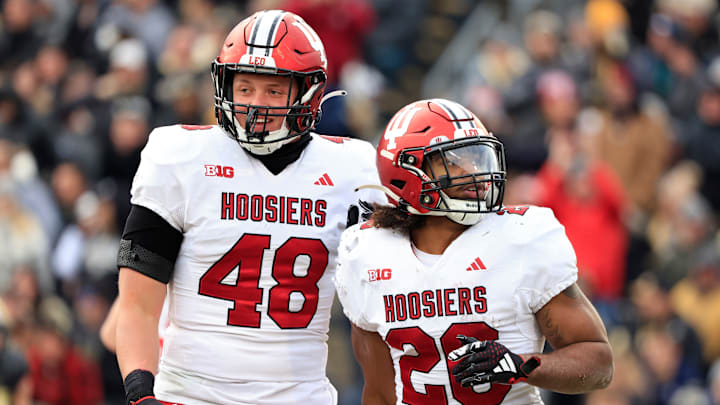Remember when the Indiana Hoosiers were good at football? Don’t overthink it, the answer is a lot more recent than you might think.
From 2015 to 2020, the Hoosiers (though not great by any stretch of the imagination) were formidable on a rather consistent basis, making four bowl appearances in six seasons—and while they were all losses, none of them were decided by more than six points.
The stretch of relevance saw its peak in their 2019 and 2020 runs, with the former seeing Indiana football hit eight wins for the first time since 1993, and the latter seeing them go 6-2, giving them their best single-season win percentage (.750) since 1967.
At that point, the Hoosiers appeared to be on the brink of a breakthrough, looking to become a thorn in the side of a loaded Big Ten East. The dream didn’t last long, however, as the collapse they’ve suffered in the years since has been as relentless as they come.
From 2021 to 2023, Indiana footabll averaged three wins a year, returning to the Big Ten basement with which it is all too familiar. When combining such a harsh tumble with the handful of dominant newcomers that the conference is welcoming in the summer, the Hoosiers have a future that couldn’t possibly look bleaker—or could it?
Indiana football could have a lot more going for it than some might assume
This upcoming season was set to be a big one for Indiana regardless of how much/little fans had to smile about, as it will serve as the beginning of the Curt Cignetti era. Before taking the IU job back in November, Cignetti was previously the esteemed head coach of the James Madison Dukes, leading them to a gorgeous 11-1 record in 2023, which was just their second year in the FBS (bowl loss to Air Force was under an interim).
That’s enough for me to deem Cignetti worthy of a Power 4 job, and if he can’t find a pulse in the Hoosiers, there likely aren’t many coaches on the market who can. Yet with that said, if he fails to do so this season, I feel there’s a strong chance he never will. I’m sure that sounds a tad melodramatic—especially coming from me, a longtime advocate for giving coaches more time to grow into bigger jobs—but please allow me to explain.
Simply put, Cignetti is inheriting an IU squad with a schedule that, at least when following a Big Ten cellar-dweller’s criteria, is unfamiliarly manageable. In other words, despite the probability of winning certain games not necessarily being favorable, the path to winning is nonetheless about as clear as it’ll ever be.
This is visible on several occasions throughout the Hoosiers’ season, but it is most so early thanks to out-of-conference opposition that's weak by even their standards.
